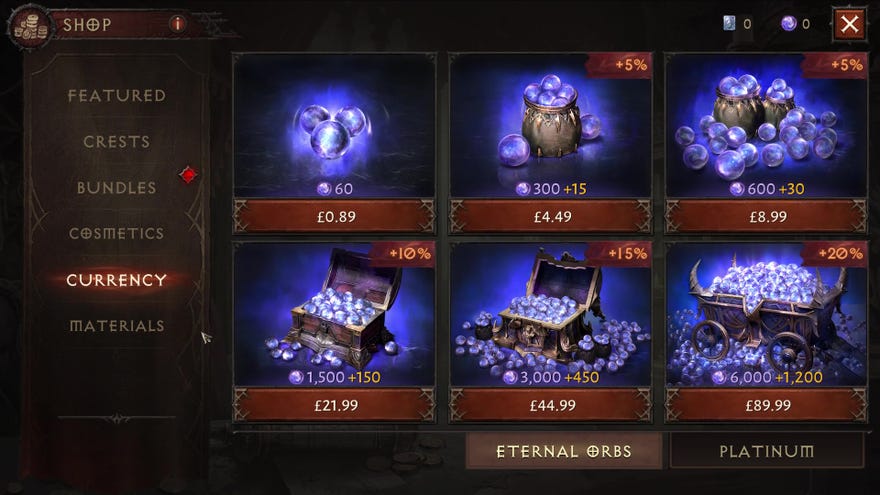HomeNews
A European consumer watchdog wants you to be able to buy exactly as much in-game currency as you need, not fixed chunksPlus a dozen other recommendations against misleading microtransaction practices
Plus a dozen other recommendations against misleading microtransaction practices

A European consumer advocacy group have published an open letter to the European Union Commission expressing their concerns about video games that make use of premium in-game currencies - aka, make-believe money you can buy with real money, such as Minecoins in Minecraft’s Bedrock Edition.
The group in question are the Bureau Européen des Unions de Consommateurs, or BEUC, who represent 44 non-governmental consumer organisations from 31 countries, and have been around since 1962. They’re accusing the publishers of Fortnite,EA Sports FC 24, Minecraft, Clash of Clans and others of misleading people - specifically children - with their in-game premium currencies, and breaching European Union consumer protection laws. Ona press sitethat summarises the results of various longer studies, they offer the below broad complaints about the practice.
Consumers cannot see the real cost of digital items, leading to overspending: the lack of price transparency of premium in-game currencies and the need to buy extra currency in bundles pushes consumers to spend more.
Companies' claims that gamers prefer in-game premium currencies are wrong.
Consumers are often denied their rights when using premium in-game currencies, tied to unfair terms favouring game developers.
Drawing on European Parliament surveys, Statistia and Steam data, the BEUC note that “more than half of EU consumers regularly play video games”, including 84% of those aged 11-14, and that “in-game purchases generated more than US$50 billion globally (approx. €46 billion), representing about one-quarter of revenues in the video game market”. They add that of the 50 most-played games on Steam in 2023, 21 featured in-game premium currencies, and of those 21, eight had an age rating of 12 years or lower.
Inthe full 35-page write-upof their investigation and complaint, the BEUC make a series of recommendations. I’ve packed them down and reworded them a little for easier digestion:
The EU should consider banning the use of premium currencies in games and apps, pending the results of the Digital Fairness Fitness Check, an on-going investigation of current EU consumer laws. Or at least, the EU should prohibit their sale to people under 18
The EU should amend consumer law to introduce stricter transparency requirements. In particular, what an in-game currency is worth in real money “should be shown clearly to consumers before each transaction made with the premium in-game or in-app currencies, for example using the same font type and size”
If in-game and in-app premium currencies aren’t banned, the EU Commission should conduct a study to determine which means of displaying them is most “efficient” for consumers and especially kids
People should receive notifications about and be asked to validate every in-game transaction, and should be required to set a password to stop unwanted transactions
Specifically, the Commission should amend the Annex of the Unfair Contract Terms (UCTD) Directive to state that discarding refund claims for in-game and in-app premium currencies is “presumably unfair”
EU consumer law should “mandate the separation” of premium in-game currencies and currencies earned in-game, so that “consumers fully understand how much they are spending in-game”
Existing consumer laws should be more consistently enforced with regard to in-game purchases, and enforcement groups for different sectors such as data protection or financial services should collaborate more
Investigating authorities should use the “vulnerable consumer” benchmark of increased professional diligence established in the Unfair Commercial Practices Directive (UCPD), because many of those exposed to in-game purchases are kids under the age of 16